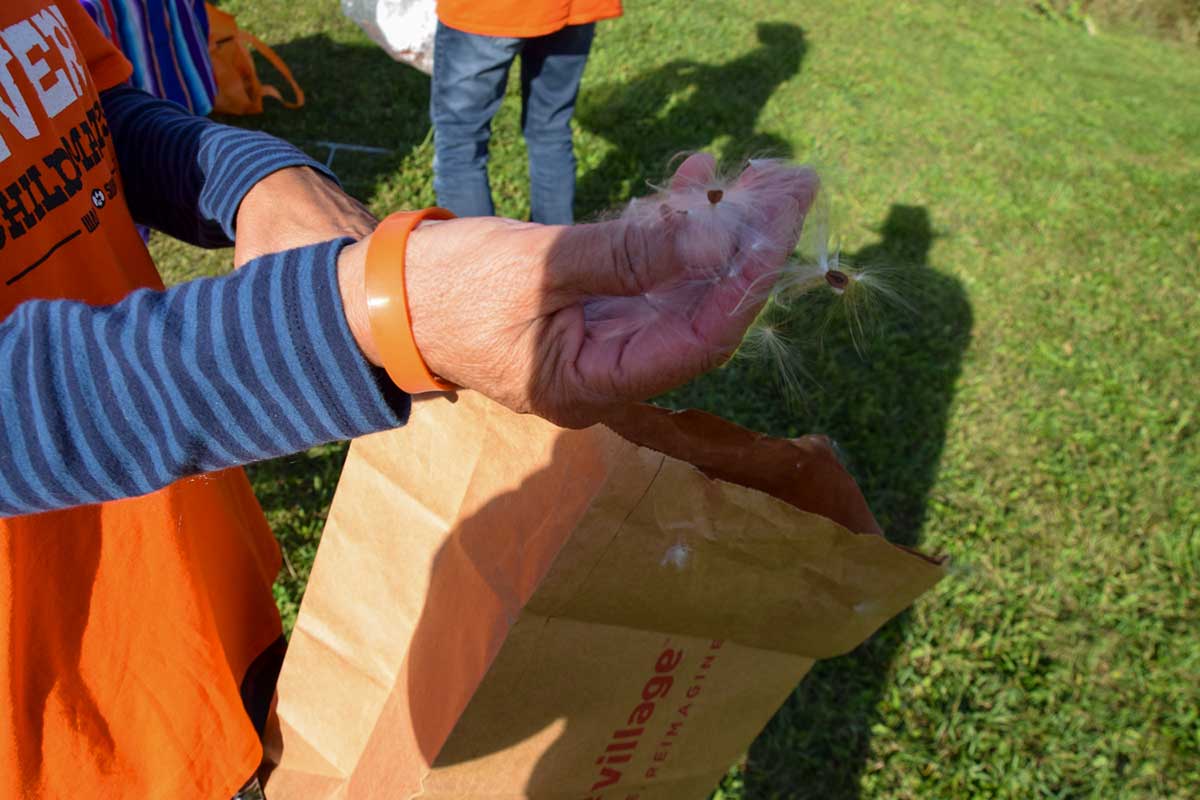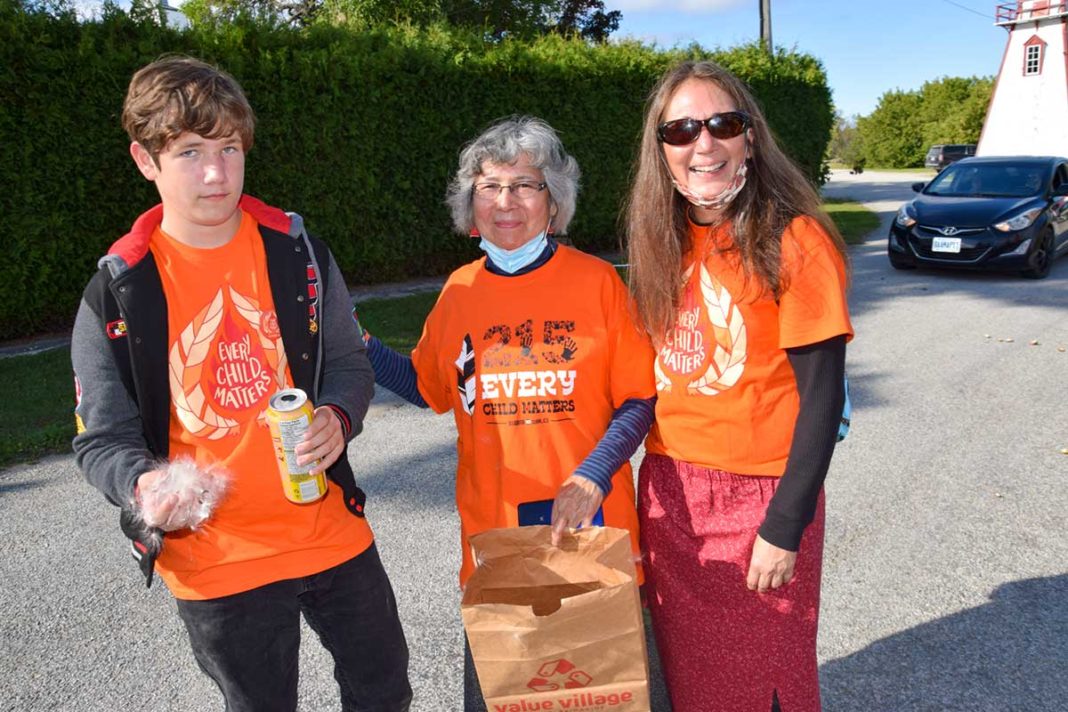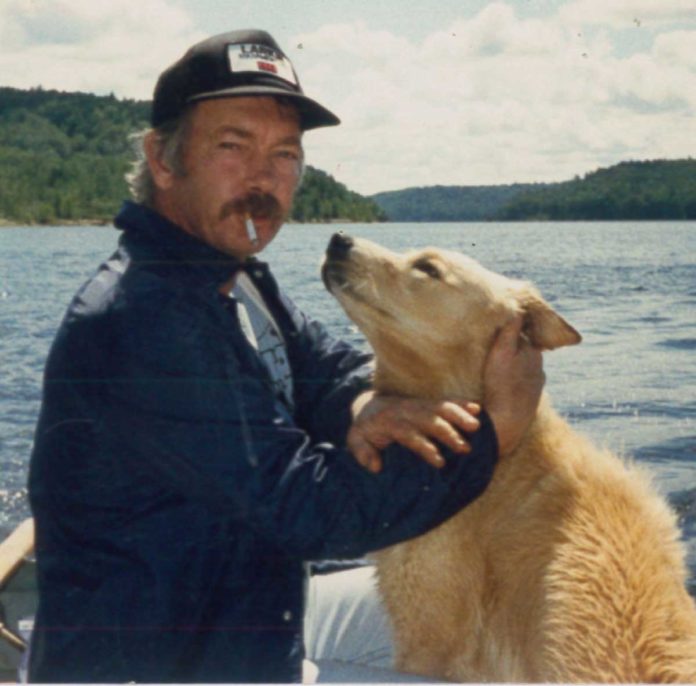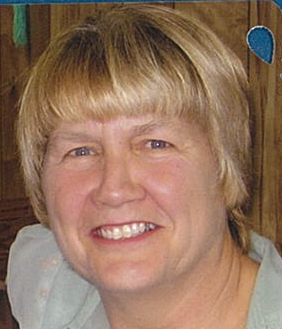MANITOWANING – A parcel of land located beside the Manitowaning lighthouse remains part of the Wiikwemkoong Unceded Territories and so was chosen for the Sow the Seeds of Reconciliation event hosted at 3 pm by the Manitoulin circle of the Ontario Native Women’s Association (ONWA) on the National Day of Truth and Reconciliation, September 30.
Overlooking the waters of Manitowaning Bay, the site was also chosen for its historical significance in the interactions of the settler community and the Indigenous communities.
Order of Canada recipient Jeannette Corbiere-Lavell was supposed to be featured at the event, but was called away on an urgent personal matter.
Suzanne Knapp stood in Ms. Corbiere-Lavell’s stead, welcoming everyone to the event and introducing the speakers, as well as giving her own thoughts on all things reconciliation.
Organizer biologist Judith Jones was on hand, complete with a paper bag filled with milkweed seeds that were handed out for the attendees to spread across the property following the speakers and songs.
Elder Rosemary Lavallee delivered a prayer and spoke at length in Anishinaabemowin. She exhorted those attending to speak out when they see injustices being done, that such things must never be allowed to happen again.
During her sharing, Ms. Jones asked the question ‘what can we do?’ in moving the process of reconciliation forward. “We are remembering them today,” she said. “We now have a day where we can remember the experiences of the residential schools, we can remember what happened,” she said. “I think, as people of the Manitoulin Island, we have a unique opportunity.” She cited the close relationships between Indigenous and non-Native communities, noting that when the power was out in Manitowaning, Wiikwemkoong called to invite communities members to come to their backup-powered arena for warmth and refreshments.
As a personal effort, Ms. Jones makes sure to use words of greeting such as “aanii” (hello) and “anishna” (how are you?) when working with young children. Taking off her hat, Ms. Jones said “if an old grey-haired lady like me can learn the language, you can too!” She suggested that non-Native people could take a little effort to learn some simple words in Anishinaabemowin, it would be a small concrete step on the path toward reconciliation.

Residential school survivor Margaret Jackson spoke on her trips back to the residential school in Spanish, noting how pleased she was to be able to share those journeys with her three children. “What should we do? What should we pray for them?” she recalled of questions from a group from the Anishnaabe Spiritual Centre she brought to Spanish. “I don’t think they need anything from us,” she said. “They were innocents.”
Ms. Jackson was only at the school for a short time, but the time she was going it was voluntary. Her family asked her if she wanted to go back and she said “no. Thank goodness from all of the things I am hearing.” She invited the attendees to go with her to Spanish to hear the stories. She related the fire drills that took place where children were forced to slide down a fireman’s pole to the ground. “It was scary,” she said.
Olivia Knapp, a new member of the ONWA circle, delivered an emotional address to conclude the event. “I think it is really important that we are all here,” she said. “I recall growing up, our history books might have one page. We have lots of stories we could tell. I believe our youth, our generations coming forward, hopefully never happening again. The love and the kindness I have felt, just going through town, there is a lot of awareness.”
As the gathering ended, seeds were distributed and spread out upon the wind as a symbol of hope and reconciliation.





